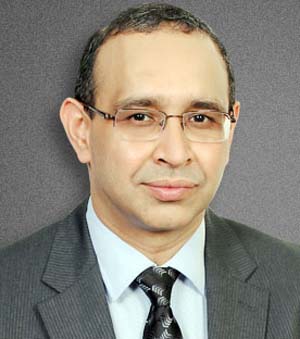Faridabad/Haryana(Standard news).. It’s that time of the year when Muslims, across the world, are observing the holy month of Ramzan. For a whole month, they observe fasting with no food or water from dawn to dusk and break their fast with the Iftar. While the month-long routineis a good way to purify one’s system and condition the body and mind,it is also imperative to calculate the health risks associated with it. As per the Quran, people with disease or illness are exempt from fasting. However, there are many who may still choose to observe the month-long fast, including people living with lifestyle diseases such as diabetes. It is crucial that awareness is raised about the health implications of long-hours of fasting, especially for patients living with Type 1 diabetes and the essential precautions that must be taken while fasting for those living with Type 2 diabetes.The duration of the daily fast varies basis the daylight hours and the month in which the Ramzan falls. With Ramzan falling in the summer this year, the fasting period can be as long as 15 hours! Long gaps between meals may lead to metabolic changes in the body which can pose serious health problems for diabetes patients. The initial days of the fasting period are particularly challenging but it can be managed well with proper monitoring of insulin levels. Commenting on it Dr. Sanjay Kalra – Consultant Endocrinologist, Bharti Hospital Karnal& Vice President, South Asian Federation of Endocrine Societies said The first and foremost advice that I would like to give to all those living with diabetes is that they should be in regular touch with their treating doctor during the period of Ramzan. The intermittent fasting, long gap and significant nutritional changes can cause fluctuation in sugar levels and patients can either face hypoglycemia, which indicates a sudden fall in blood sugar levels causing unconsciousness and seizures, or hyperglycemia, which means a sudden increase in blood sugar leading to increased fatigue, thirst, headaches and blurry vision. Generally, patients with Type 1 diabetes are at higher risk of facing hypoglycemia. One should not forget that feasting is also an integral aspect of Ramzan and people with diabetes should be extra cautious regarding the diet regime that they follow during these days.People living with diabetes need to show some restraint while breaking their day-long fast. Care must be taken so as to keep the body well hydrated and one should refrain from drinking sugar-laced and caffeinated beverages. Fruits are preferred over juices as they are sources of natural sugar. At Sehri, one should eat food in small quantities and it should include more proteins and less carbohydrate with lots of fruits, whole grain, lentils, whole grain bread, low sugar cereals and beans. Sweets, fried snacks and foods high in sugar or salt content should be avoided. It is advisable to include food items rich in protein like eggs or dal in one’s pre-dawn meal, given that it will provide energy for the rest of the day. For patients living with diabetes, the decision to fast should be made keeping in mind religious guidelines for exemption and after careful medical consultation. This will ensure a safe and healthy Ramadan added Dr. Sanjay Kalra. Even if fasting is pre-requisite for one’s spiritual belief, one must ensure that it is done in a planned and healthy manner. Doctors must ensure that they educate their high-risk patients about the dangers of keeping the fast and discourage them from it.
A few guidelines for patients with diabetes:
People with diabetes should seek medical advice and undergo a pre-assessment test before the onset of Ramadan
Prior awareness of diabetes management can ensure safe & healthy fasting. The more people living with diabetes are informed about the Do’s & Don’ts, the more they can exercise self-control and can take timely precautionary measures.
A monitored diet plan should be maintained. Avoid ingesting food with high doses of sugar, fat & carbohydrate as it can lead to post-meal hyperglycemia.
In order to avoid dehydration, intake of adequate amount of fluid (sugar-free) is recommended.
It is best for patients living with Type 1 diabetes to consult their doctors regarding insulin dose adjustment as they are at higher risk of hypoglycemia. Individuals with Type 2 diabetes can have a prior diet chart plan made as directed by the Endocrinologist, and get an overall diabetes management plan.
Blood sugar should be regularly monitored to avoid any adverse effect on health.
All patients should end their fast if blood sugar reaches less than 70mg/dl or 300mg/dl.













